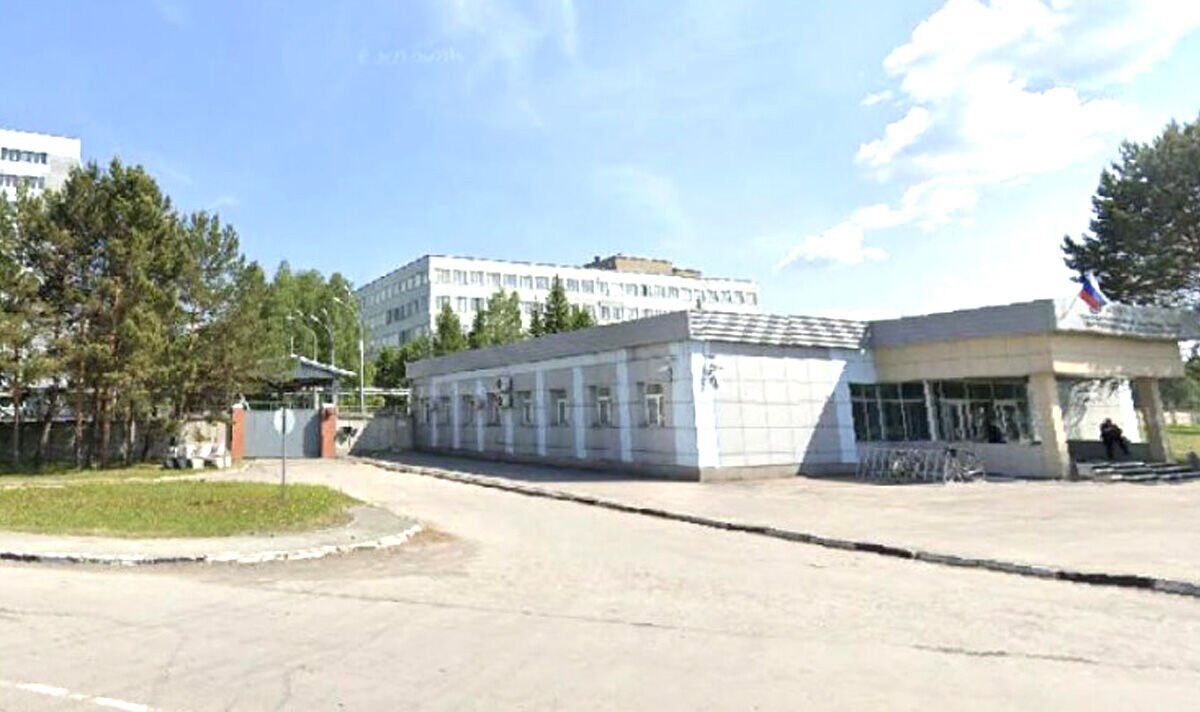Coronavirus: Experts detect virus using nanotechnology bubbles
We use your sign-up to provide content in ways you’ve consented to and to improve our understanding of you. This may include adverts from us and 3rd parties based on our understanding. You can unsubscribe at any time. More info
Russian scientists in the heart of Siberia have been working to reawaken ancient viruses to determine how they evolve, sparking fears that a mishap could trigger another pandemic. In light of the widespread suspicion that the coronavirus may have escaped from a virus research facility in Wuhan, China, western scientists, who have had little to no communication with their Russian counterparts since Putin’s invasion of Ukraine on February 24, fear that the Russian lab in question is “not up to date” and handling these viruses negligently. Within the State Research Center of Virology and Biotechnology VECTOR, also known as the Vector Institute in central Russia, scientists have been analysing the remains of mammoths, woolly rhinoceroses and other Ice Age animals that were perfectly preserved within a region in Siberia.
The scientists are believed to be carrying out the research to identify and revive prehistoric viruses, also known as paleoviruses.
They have been conducting the research through the analysis of Ice Age-era animals that had been perfectly preserved in the frozen earth of Yakutia, a vast region in northeast Siberia.
The woolly mammoths and rhinoceroses were found in the region where temperatures can plummet as low as -55C.
But western scientists have expressed concern about the quality of the care within the research centre, especially given how potentially dangerous the viruses could be.

Professor Jean-Michel Claverie, from the National Centre of Scientific Research at the University of Aix-Marseille, said the work being done by the Russian scientists was “very, very risky”.
He said: “The Vector research is very, very risky. Our immune systems have never encountered these types of viruses. Some of them could be 200,000 or even 400,000 years old.”
He also warned that the viruses at risk of being revived would have killed mammoths and would be able to infect humans.
A similar project was undertaken by French scientists, who made headlines last month for announcing that they had revived a “zombie” virus that had been under a lake bed in Yakutia for almost 50,000 years.

But the French researchers said their discovery was an amoeba-infecting virus and was of little danger to animals or humans.
This is distinct from what is believed about the research by Russia, which could have devastating effects on humans.
The Russian scientists have been accused of “gain-of-function” virology, which is aimed at creating a deadlier strain of a pathogen for research purposes. Justification for the practice ranges from a desire to expand scientific knowledge to help tackle future outbreaks to becoming aware of previously unknown viruses before they get released as climate change melts the Arctic and Siberia.
Some believe that it is not a risk worth taking, however, and that there is not “enough discussion” about the societal implications.
DON’T MISS: ‘Don’t be fooled by China Covid climbdown’ [OPINION]
Covid and flu admissions to exceed pandemic levels amid nurses strike [REVEAL]
Lessons learned from Covid could help tackle Strep A, expert says [INSIGHT]

Filippa Lentzos, a biosecurity expert at King’s College London, said: “There isn’t enough discussion around whether we as a society today are willing to take those risks.”
The Vector State Research Centre of Virology and Biotechnology is one of 59 maximum-security biolabs in the world and is a former Soviet biological weapons laboratory.
It is also one of only two sites that are allowed to keep samples of the deadly smallpox virus, with the other in the United States.
In 2019, a mandatory inspection by the World Health Organisation found no significant concerns but the WHO team was unable to observe the researchers conducting practical work as the facility was closed for “scheduled maintenance”.
Mr Clavarie said: “I would not be very confident that everything [at Vector] is up to date.”
READ NEXT: China eases covid quarantine and lockdown measures
Matt Hancock blasts Sturgeon’s Covid rules
Chinese health chief calls for CCP to scrap Zero-Covid
Hancock’s ‘worst conversation’ was confessing affair to wife
Matt Hancock’s Covid diaries lay bare moment whole room froze
Source: Read Full Article





